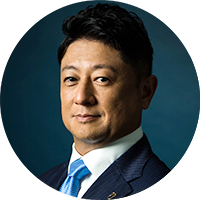Coach's VIEW is a business column authored by executive coaches in COACH A, aimed at providing valuable insights and effective approaches for leveraging coaching to foster organizational and leadership development. The column draws on the latest coaching trends and data, as well as insights from notable global publications on coaching.
What Drives Goal Achievement

In executive coaching, clients establish meaningful goals they genuinely desire to achieve through productive dialogue with their coach. This process emphasizes the significance of comprehending the client's background and personal values. While goal setting may appear straightforward, it is, in reality, a deep and intricate undertaking, as identifying truly impactful goals can be quite challenging.
In a coach training session I attended this January, the focal point was "Transformation". During the session, we dedicated time to contemplate the disparity between "need" and "desire". Needs are transient and surface-level, whereas desire delves deeper and carries a more profound significance (beneath the surface).
During the training, I engaged in introspection regarding the foundation of my goals, questioning how many of them were truly driven by a deep desire. Simultaneously, I had meaningful conversations with my colleagues. Although I sensed that I could not fully attain my "intense desire," I discovered a strong desire to be valuable and acknowledged by others, and to establish connections for that purpose.
Looking Beyond the Goals
Our client, Steve, is currently facing challenges with organizational transformation as the individual responsible for the business in his designated region. In the past, this region's business served as a significant source of global revenue. However, in recent years, customer satisfaction has declined, and performance has stagnated. Steve has been entrusted by management with the responsibility of revitalizing the business. As he implements strategic changes and initiates organizational transformation, he has become increasingly concerned about the lack of motivation among his employees to achieve the set goals.
During interviews with executives, we often come across statements such as:
"We have been generating satisfactory profits thus far."
"We are fulfilling our obligations, but due to our weak strategy, we are being surpassed and outpaced by other companies."
Setting aside the question of whether the strategy is good or bad, as we delve into discussions about the goals that executives and employees are truly passionate about, I shared with Steve the concept of "desire" that I had previously explored during the training. In response, he expressed, "My goal is to surpass the market's expectations. I have been engaging with other executives, hoping that they share the same mindset. However, upon reflection, I realized that my aspirations differ from those of the other executives. My primary focus is on achieving results that will allow all of us to spend more quality time with our family."
Losing Sight of Aspirations Due to Targets
In the past, employees in the region were provided with the autonomy to contemplate their desired pursuits and were granted the time and opportunities to explore them. However, Steve reflects, "Previously, we believed that we couldn't pursue those endeavors due to unfavorable market conditions and limited space. Yet, upon further consideration, it appears that the environment might not be the sole determining factor."
"As performance started to decline, we began assigning specific tasks to our local senior executives. These tasks became their primary goals, which they broke down in order to actualize their vision for the organization. It's possible that they believed that as long as they completed their assigned tasks, it would bring about the desired changes in the organization. Although I had the intention of asking them about their own aspirations, I now realize that I may have inadvertently influenced them by communicating what I wanted them to do and seeking their agreement."
He acknowledged that the current state of the company may not be solely attributed to shifts in the market environment, but rather to his own approach as a top manager, including how he interacted with and perceived his employees.
He shared, "Since I started working in this region, I felt a sense of discomfort, which I interpreted as a crisis and prompted me to drive change. Even in this change initiative, while I may have emphasized the importance of diversity, I realize that I have been seeking individuals who align with my own perspectives to facilitate the transformation. Although we are still in a phase of observing the outcomes of these changes, I have a renewed desire to understand my employees better, including their backgrounds, and to gauge the extent to which they value the aspirations of their colleagues with whom they collaborate."
Steve and I assigned each other homework for the next session, which involved actively listening to the "desires" of three specific subordinates and reflecting upon our own management styles based on the insights gained.
Why Do You Want to Achieve That Goal?
As explained by the American researcher who conducted this training, the concept of "desire" encompasses the following elements:
- Wanting to be understood and acknowledged by others.
- Seeking connection with others, experiencing love and being loved.
- Desiring to have an influence on others.
- Longing for a sense of security.
- Striving to fulfill our purpose.
These desires often go unspoken or unnoticed because they may be perceived as human weaknesses, selfishness, or unrelated to business matters. Consequently, even when we do recognize a deep desire within ourselves, some individuals may hesitate to embrace it. This is why we often disregard our own "desires" and instead set goals based on superficial yearnings.
But what is the underlying reason driving your desire to achieve that goal? Truly understanding others means gaining insight into their aspirations. Through my meaningful dialogue with Steve, I have come to realize that the role of a supervisor extends beyond merely helping individuals develop the necessary skills to complete their tasks. It involves delving deep into their inner desires, providing them with suitable opportunities, and supporting them in realizing their aspirations.
As adults, we often find ourselves setting goals based on societal expectations or what we believe we should do. However, when faced with a lack of desired outcomes, it can be illuminating to reconnect with our core desires, as they hold the potential to guide us towards meaningful progress. At the onset of this year, I have been afforded the opportunity to pause and ponder whether the goals we establish are genuinely capable of igniting a sense of purpose within individuals.
*Regardless of profit, non-profit or intranet, secondary use such as copying, diversion, selling etc. is prohibited without permission.
Language: Japanese

